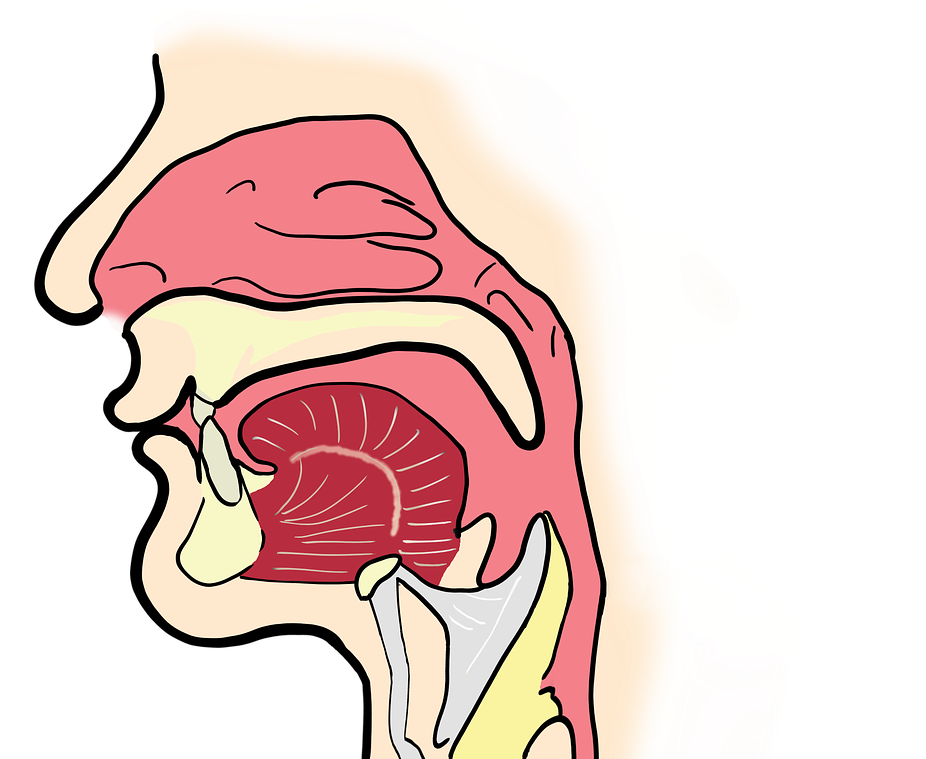What Are the Symptoms of Hypopharyngeal Cancer

Hypopharyngeal cancer often presents with symptoms like throat discomfort, swallowing difficulties, or voice changes. These signs may seem minor at first, but they can indicate serious underlying issues. Globally, this cancer accounted for approximately 85,000 new cases in 2020, with the highest rates in Southeast Asia and Europe. Unfortunately, only 1-2% of cases are diagnosed early, making awareness crucial. If you notice persistent symptoms, paying attention to them can make a significant difference in your health outcomes.
Key Takeaways
If you have a sore throat or trouble swallowing for over two weeks, see a doctor.
Finding hypopharyngeal cancer early can make treatment work better, with survival rates over 70% in early stages.
Watch for other signs like losing weight without trying, ear pain, or changes in your voice, as these could mean serious problems.
Check your neck for lumps often. This can help find cancer early and get treatment quickly.
Staying away from smoking and drinking alcohol can lower your chances of getting hypopharyngeal cancer.
Common Symptoms of Hypopharyngeal Cancer

Persistent Sore Throat
A sore throat that doesn’t go away is one of the earliest signs of hypopharyngeal cancer. You might feel persistent discomfort or a sensation of something stuck in your throat. This symptom often worsens over time, making it harder to ignore. Chronic sore throat occurs because the tumor irritates the lining of your throat, causing inflammation.
Other related symptoms may include:
A foreign body sensation in the throat.
Persistent bad breath.
If you notice these signs lasting more than two weeks, it’s essential to consult a healthcare provider.
Difficulty Swallowing (Dysphagia)
Trouble swallowing, or dysphagia, is another common symptom. You may feel pain or a blockage when eating or drinking. This happens because the tumor narrows the passage in your throat, making it harder for food to pass. Over time, swallowing difficulties can lead to weight loss or malnutrition.
Radiation therapy, often used to treat hypopharyngeal cancer, can worsen dysphagia. It causes swelling in the throat and changes in saliva production, making swallowing even more challenging. If you experience this symptom, seek medical advice promptly.
Ear Pain
Referred ear pain, or otalgia, is a less obvious symptom of hypopharyngeal cancer. You might feel pain in one or both ears without any ear infection. This occurs because the nerves in your throat and ears are connected, and the tumor can irritate these shared pathways.
In clinical studies, ear pain was reported in about 14% of patients with hypopharyngeal cancer. If you experience unexplained earaches along with other symptoms, it’s worth discussing them with a specialist.
Lump in the Neck
A lump in the neck is one of the most noticeable symptoms of hypopharyngeal cancer. You might feel a swelling or mass on one side of your neck. This lump often develops because cancer spreads to nearby lymph nodes. These nodes, part of your immune system, can enlarge when they try to fight off the disease.
You should pay attention to any lump that doesn’t go away after two weeks. It may feel firm or tender, and its size can vary. Sometimes, the lump grows slowly, making it easy to overlook. However, ignoring it can delay diagnosis and treatment.
Tip: Use a mirror to check your neck regularly. If you notice any unusual swelling, consult a doctor promptly.
Doctors often use imaging tests like CT scans or MRIs to evaluate neck lumps. These tests help determine if the lump is related to hypopharyngeal cancer or another condition. Early detection improves your chances of successful treatment.
Voice Changes or Hoarseness
Voice changes, such as hoarseness, can signal hypopharyngeal cancer. You might notice your voice sounding raspy, weak, or strained. This happens when the tumor affects your vocal cords or nearby nerves.
Hoarseness often starts subtly but worsens over time. You may also feel like speaking requires more effort. If your voice changes last longer than two weeks, it’s essential to seek medical advice.
Note: Not all voice changes indicate cancer. Conditions like laryngitis or vocal strain can cause similar symptoms. However, persistent hoarseness should never be ignored.
Doctors may perform a laryngoscopy to examine your throat and vocal cords. This procedure helps identify the cause of your symptoms. If hypopharyngeal cancer is diagnosed, early treatment can prevent further damage to your voice.
Additional Symptoms to Be Aware Of
Unexplained Weight Loss
Losing weight without trying can be an alarming sign. In hypopharyngeal cancer, this often happens because eating becomes difficult due to pain or swallowing issues. Your body may also burn more calories as it fights the disease. Over time, this unexplained weight loss can lead to weakness and fatigue.
If you notice a sudden drop in weight, it’s important to monitor other symptoms. For example:
Are you struggling to eat or drink?
Do you feel full after eating very little?
These could indicate that the cancer is affecting your ability to maintain proper nutrition. Consulting a doctor early can help address these concerns and improve your overall health.
Difficulty Breathing
Breathing problems can occur in advanced cases of hypopharyngeal cancer. You might feel short of breath or notice a change in your voice, often described as a "hot potato voice." This happens when the tumor blocks your airway or causes swelling in your throat.
In severe cases, breathing difficulties may require immediate medical intervention. For instance, some patients need a tracheostomy to help them breathe. If you experience persistent shortness of breath, seek medical attention right away.
Tip: Keep track of any breathing changes, especially if they worsen over time. Early detection can prevent complications.
Coughing Up Blood
Coughing up blood, also known as hemoptysis, is a serious symptom of hypopharyngeal cancer. This occurs when the tumor damages blood vessels in your throat or lungs. Even small amounts of blood in your saliva or mucus should not be ignored.
This symptom often signals advanced disease progression. If you notice blood while coughing, consult a healthcare provider immediately. Early diagnosis can help manage the condition and improve your quality of life.
Symptom | Significance |
|---|---|
Otalgia | Ear pain often associated with throat issues |
Halitosis | Bad breath indicating possible cancer presence |
Hemoptysis | Coughing up blood, a serious symptom of cancer |
By staying alert to these symptoms, you can take proactive steps toward early detection and treatment.
Importance of Early Detection in Hypopharyngeal Cancer

How Early Diagnosis Improves Treatment Outcomes
Detecting hypopharyngeal cancer early can significantly improve your chances of successful treatment. Early-stage cancers are often smaller and confined to the hypopharynx, making them easier to treat with surgery, radiation, or a combination of therapies. When diagnosed early, survival rates can exceed 70%, compared to just 22% for advanced-stage cancers.
Stage | 5-Year Survival Rate |
|---|---|
Stage I | 63.1% |
Stage II | 57.5% |
Stage III | 41.8% |
Stage IV | 22% |
Overall | 20-47% |
Diagnostic tools like CT scans, MRIs, and biopsies play a crucial role in early detection. A CT scan can help locate the tumor and assess its size, while an MRI provides detailed images of soft tissue involvement. A biopsy confirms the diagnosis by analyzing tissue samples. These tools allow doctors to identify cancer at its earliest stages, giving you the best chance for a positive outcome.
Tip: If you experience persistent symptoms like difficulty swallowing or a sore throat, consult a specialist promptly. Early action can save lives.
Progression of Symptoms Over Time
Hypopharyngeal cancer symptoms often start subtly, making them easy to overlook. In the early stages, you might not notice any significant discomfort. As the tumor grows, symptoms like difficulty swallowing, ear pain, and hoarseness become more apparent.
Without treatment, the cancer can invade nearby structures, leading to severe complications. You may experience vocal cord paralysis, breathing difficulties, or even coughing up blood. A painless lump in the neck might also appear as the disease spreads to lymph nodes.
Early symptoms: Persistent sore throat, mild swallowing difficulties, or voice changes.
Advanced symptoms: Severe pain, weight loss, and airway obstruction.
Recognizing how symptoms progress can help you act quickly. If you notice worsening symptoms, seek medical advice immediately. Early intervention can prevent the disease from advancing and improve your quality of life.
When to Seek Medical Advice for Hypopharyngeal Cancer
Persistent Symptoms That Don’t Improve
If you experience symptoms like a sore throat, difficulty swallowing, or ear pain that persist for more than two weeks, it’s time to consult a doctor. These signs may seem minor at first, but they could indicate a serious condition like hypopharyngeal cancer. Other symptoms to watch for include hoarseness, breathing difficulties, or a lump in your neck.
Tip: Keep track of how long your symptoms last. If they don’t improve or worsen over time, don’t delay seeking medical advice.
Ignoring persistent symptoms can allow the disease to progress, making treatment more challenging. Early evaluation by a healthcare provider can help identify the cause and lead to timely intervention.
Symptoms That Interfere With Daily Life
When symptoms start to disrupt your daily activities, it’s crucial to act. For example, difficulty swallowing might make eating or drinking uncomfortable, leading to weight loss or malnutrition. Breathing problems can interfere with sleep or physical activity, while voice changes may affect your ability to communicate.
These disruptions not only impact your quality of life but may also signal advanced disease. Addressing these issues early can prevent further complications and improve your overall well-being.
Callout: If you notice blood in your saliva or mucus, seek immediate medical attention. This could be a sign of advanced hypopharyngeal cancer.
Consulting a Specialist for Evaluation
If your symptoms persist or interfere with your life, consulting a specialist is essential. An otolaryngologist (ENT doctor) or oncologist can perform detailed evaluations, including imaging tests and biopsies, to determine the cause. Specialists can also guide you through treatment options tailored to your condition.
Consider asking questions about your diagnosis, treatment options, and potential side effects. You might also explore second opinions or clinical trials for innovative therapies. Building a support network and maintaining open communication with your healthcare team can help you navigate the challenges of treatment.
Reminder: Don’t hesitate to advocate for yourself. Your voice matters when making decisions about your care.
Hypopharyngeal cancer often presents with symptoms like a persistent sore throat, difficulty swallowing, ear pain, or voice changes. Recognizing these signs early can significantly improve your chances of successful treatment. For example:
Early detection leads to a 5-year survival rate exceeding 70% for patients with localized cancer and no lymph node involvement.
In contrast, the overall survival rate drops to 25-30% when diagnosed at later stages.
To reduce your risk, consider lifestyle changes such as avoiding tobacco, limiting alcohol, and maintaining a balanced diet. If you notice persistent symptoms, consult a healthcare professional promptly. Early action can save lives.
Tip: Regular check-ups and awareness of risk factors, like smoking or HPV, can help catch this cancer early.
FAQ
What causes hypopharyngeal cancer?
Hypopharyngeal cancer often develops due to risk factors like smoking, heavy alcohol use, and exposure to certain chemicals. Infection with HPV (human papillomavirus) can also increase your risk. Genetics and environmental factors may play a role as well.
Can hypopharyngeal cancer be prevented?
You can reduce your risk by avoiding tobacco and alcohol, maintaining a healthy diet, and protecting yourself from HPV through vaccination. Regular check-ups and awareness of symptoms can also help with early detection.
How is hypopharyngeal cancer diagnosed?
Doctors use imaging tests like CT scans, MRIs, and PET scans to locate tumors. A biopsy confirms the diagnosis by analyzing tissue samples. These methods help determine the stage and spread of the cancer.
Is hypopharyngeal cancer treatable?
Yes, treatment options include surgery, radiation therapy, and chemotherapy. The choice depends on the cancer’s stage and your overall health. Early detection improves the chances of successful treatment and recovery.
What should you do if you suspect hypopharyngeal cancer?
If you notice persistent symptoms like a sore throat, difficulty swallowing, or a lump in your neck, consult a healthcare provider immediately. Early evaluation can lead to timely diagnosis and better outcomes.
Tip: Keep a symptom diary to share with your doctor for a more accurate assessment.
---
ℹ️ Explore more: Read our Comprehensive Guide to All Known Cancer Types for symptoms, causes, and treatments.
See Also
Identifying the Signs of Appendix Cancer You Should Know
Recognizing the Symptoms and Causes of Esophageal Cancer
Key Symptoms and Causes Associated with Stomach Cancer

